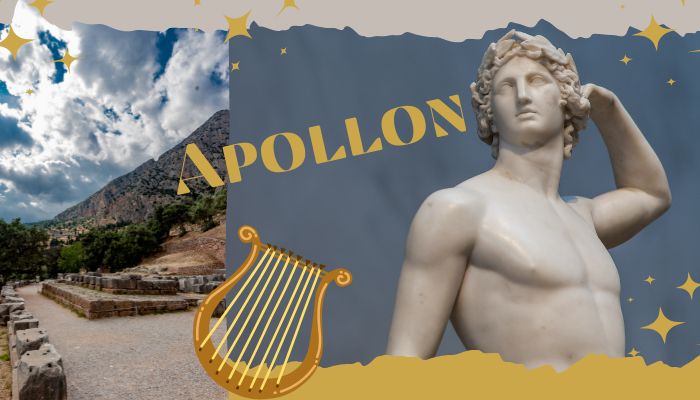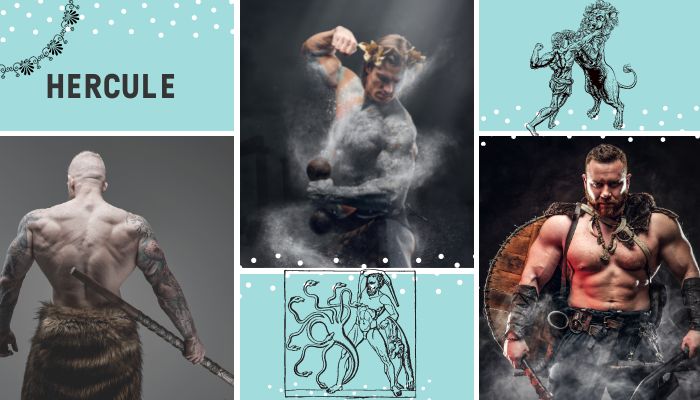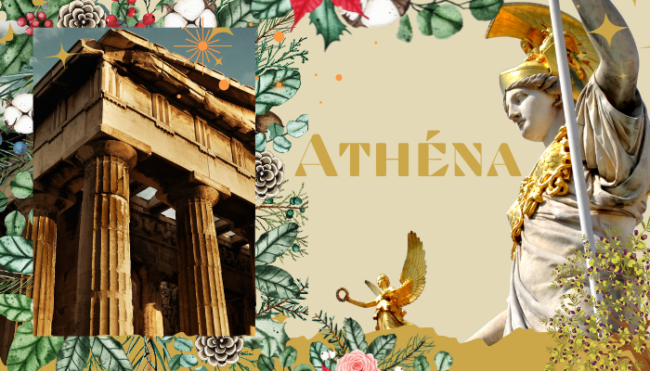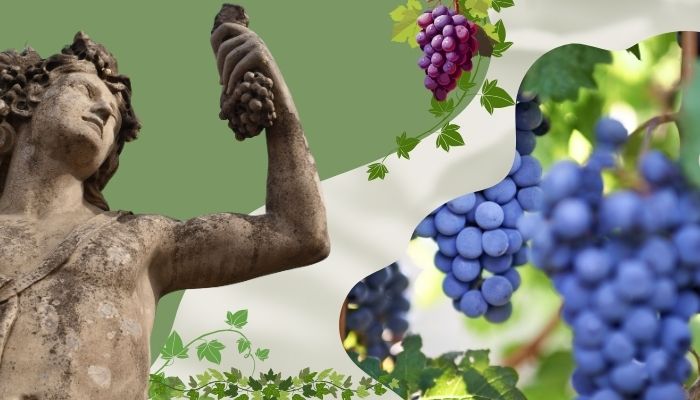God of Olympus, Apollo is best known as the god of beauty, but he’s also a warrior god. A champion archer, he is often depicted with his bow and arrow. Not only that, he is also god of the arts, of light, of the sun, of divination… And much, much more! This may explain why so many temples and places of worship have been erected in his name in Greece.
Who is Apollo?
Apollo is the god of sun and light. It was called Phoebus, the Roman word for shiny. He is portrayed as a strong, handsome young man with golden hair and brilliant eyes, armed with a silver bow that shoots deadly arrows. He’s a warrior god, a champion archer. He is also god of the arts, beauty, divination, purification, healing, youth, games, music, song, poetry… His attributes are lyre, bow and laurel. Despite his great beauty, Apollo is rather unhappy in love. He still had many children. Apollo’s best-known son is Asclepius god of medicine.
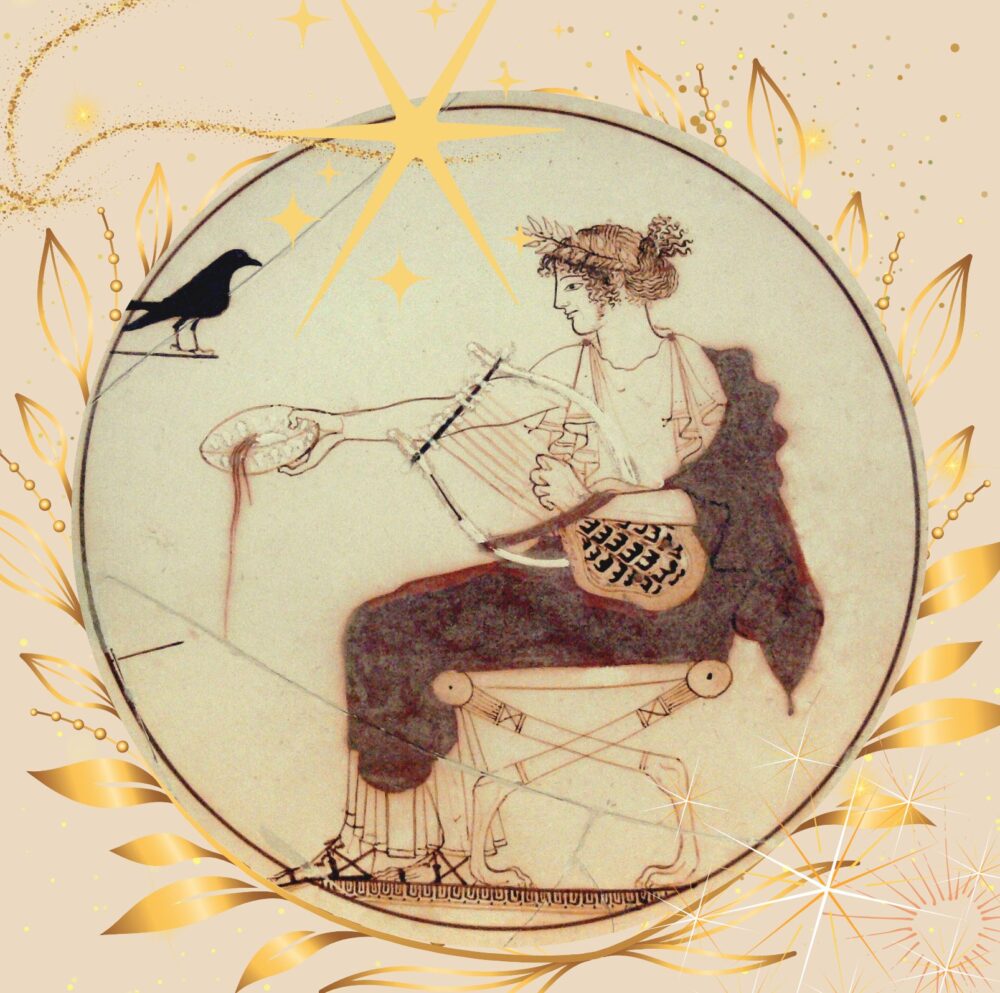
Her parents?
Apollo is the love child of Zeus and Letô, and has a twin sister, the fierce Artemis Diane in Roman. Her mother, fearing the vengeance of Zeus’ wife, Hera had chosen Delos the safest refuge she could find for giving birth… Leto then gave birth to Apollo and his twin sister under a palm tree on the sacred island of Delos.
The different “faces” of Apollo
Apollo is the god of youth and games, protecting gymnasiums, wrestling and racing. God of prophecies, he is often accompanied by the raven, the wolf and the dolphin. God of poetry, he inspires poets and leads the rounds of the Muses, the nine daughters of Zeus. He’s also a great hunter, and the best at archery. He sometimes appears with a fierce, emotionless face… Beware, this luminous god is not only ”
handsome as an Apollo
!”. In fact, it’s more of an intellectual beauty. It’s the beauty and artistic light of music, dance, poetry…
Apollo and Delphi
Apollo liked the site of Delphi and decided to build his temple there. But the place was guarded by a monster, a terrible snake named Python. Apollo killed him with his bow, arrows and flaming torch.
Apollo, the Pythia and the Delphic Games
Thus, in memory of Apollo’s victory over Python, the famous Pythonic Games were instituted. These are musical and poetic competitions based on Apollo’s attributes. The victors received wreaths made of laurel branches, and the god Apollo presided, seated on a throne of greenery.
If you would like to visit Delphi, here are our articles:
- How to get to Delphi
- How to visit the sanctuary
- Day trips to visit Delphi? car rental, self-guided tour, group tour, private tour…
- Where to sleep in Delphi ?
Pythia and the oracles
The cult of Apollo at Delphi reveals the god’s purifying and moral character. Through the voice of the Pythia, the priestess who, in a state of ecstasy, gave prophecies in the sanctuary of her temple, the god gave the right solution for all, individuals or cities. The oracles – most of them ambiguous – encouraged colonization and preached wisdom, moderation and moderation.
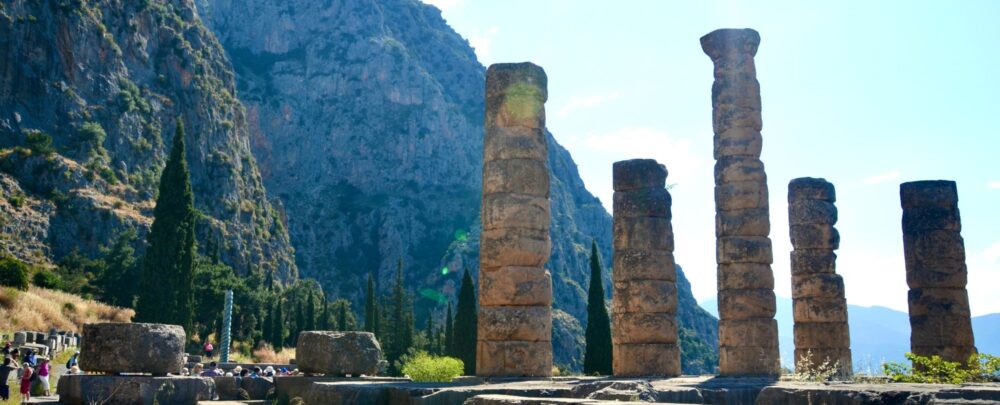
Apollo and Daphne
The god fell in love with Daphne, a pretty young woman who tried to avoid him at all costs. He pursued her for a whole year, until the gods took pity on her and turned her into a laurel tree. And if I tell you that the Greek word for laurel is Daphne… But Apollo detached a branch from the tree and made it into a crown, which he later wore on his head. Since then, we’ve been
”resting on our laurels!
Apollo and the Colossus of Rhodes
The cult of Apollo was also established on the island of Rhodes . A colossal statue of him had been erected, with each foot resting on one of the two outlying rocks that formed the entrance to the port. The ships passed, without lowering their masts, between the legs of the colossus. The Colossus of Rhodes was the first of the Seven Wonders of the World.
Finally, he is a much-loved god, and this is probably due to his association with many positive aspects of the human condition, such as music, poetry, purification, healing and medicine.
Céline P. and Mania
